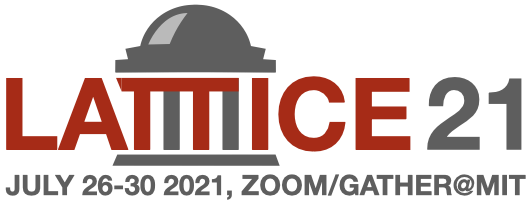Speaker
Description
In recent years many candidates for states beyond the most simple realization of the quark model were found in various experiments around the world. However, so far no consensus exists on their structure, although there is strong evidence that at least some of those are dynamically generated from meson-meson interactions.
We provide an important missing piece from the theoretical side to prove that the various structures seen in the $\pi D^{(*)}$, namely the lightest open charm scalars $D_{s0}^*(2317)$ and $D_0^*(2300)$ as well as their axial vector partner states can all be understood as emerging from Goldstone-Boson--$D$-meson scattering.
In a SU(3) flavor-symmetric lattice QCD simulation at large pion masses we establish that there exists a $\pi D$ bound state in the flavor-sextet representation that cannot emerge for quark-antiquark states, but that appears naturally from the multiquark states. Moreover, we find repulsion in the $[15]$ representation, which establishes the pattern predicted for the interactions of Goldstone bosons with $D$ mesons.




